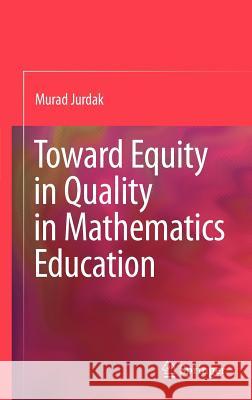Toward Equity in Quality in Mathematics Education » książka
Toward Equity in Quality in Mathematics Education
ISBN-13: 9781441905574 / Angielski / Twarda / 2009 / 177 str.
Toward Equity in Quality in Mathematics Education
ISBN-13: 9781441905574 / Angielski / Twarda / 2009 / 177 str.
(netto: 383,36 VAT: 5%)
Najniższa cena z 30 dni: 385,52
ok. 16-18 dni roboczych.
Darmowa dostawa!
Educational equity and quality are not only research issues which cut across different disciplines but are major determinants of socio-economic and human development in both industrial and developing countries. The status and role of mathematics, a subject which has long enjoyed a privileged status in school curricula worldwide due to its perceived role in science and technology, render equity and quality in mathematics education at the heart of human development. This is reflected by governments' relatively large investments in improving the quality of mathematics education and extending it to marginalized and underprivileged groups.
The purpose of Toward Equity in Quality in Mathematics Education is four-fold. First, the book examines the constructs of equity and quality and their interdependence from different perspectives. Second, it develops a conceptual framework for studying and analyzing the two constructs. Third, it examines, consolidates, and re-structures the literature on equity and quality in mathematics education. Finally, using data from TIMSS 2003, the book investigates the within and across country impact of the different equity-related factors on mathematics achievement in a sample of countries representative of worldwide geographical and cultural regions.
Towards Equity in Quality in Mathematics Education uses a multi-dimensional conceptual framework to study and analyze issues in equity and quality. The framework consists of five perspectives hypothesized as determinants of equity in quality in mathematics education: Mathematical, societal, educational, ideological, and genetic. The framework can be thought of as a pyramid with mathematics as its base and the societal, educational, ideological, and genetic perspectives as its faces. Thus, each point within this pyramid represents a unique equity in quality situation i.e. with different coordinates with respect to mathematical, societal, educational, ideological, and genetic perspectives.
Towards Equity in Quality in Mathematics Education is useful for teachers and researchers in mathematics education.











